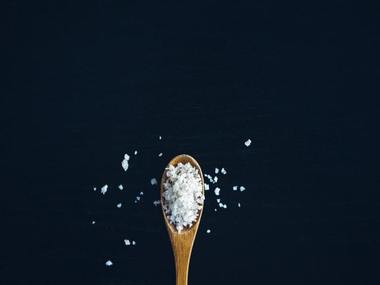Salt is one of the most important ingredients that ads taste to any dish. Without salt, no matter how delicious the food may be, it will still be tasteless thus establishing the importance of table salt in every Indian household. So it came as a shock when I heard that Indian table salt contained poisonous, carcinogenic substances and premium salt brands were claimed to be harmful for human consumption. Having heard this from multiple sources, I was eager to know more. Ever since I was a child, I remember consuming only Tata Salt. As a child, for me iodised Indian table salt and Tata salt was synonymous and I truly believed in the power of Desh Ka Namak – the tag line for Tata Salt. So I looked up this claim and discovered that according to several online portals mentioned that Tata Salt contained Potassium Ferrocyanide which is believed to be harmful for human consumption. It was difficult to believe but also tough to ignore such a big allegation made against a big brand like Tata. At first, it all looked convincing but after reading several small-time websites I realized that it was all fake news aimed at hampering the impeccable reputation of a trusted brand like Tata. I did some more research to learn that Potassium Ferrocyanide or PFC is an inorganic compound which forms monoclinic crystals. Cyanide, on the other hand, is carcinogenic which is not present in edible Indian salt. The Food Safety and Standard Authority of India (FSSAI), an independent authority under the Ministry of Health and Welfare clarified on Twitter that Indian table salt is safe for consumption and the Indian Medical Association (IMA) too refuted claims of the presence of carcinogenic substances in Indian table salt or Tata Salt.
#FssaiInFocus
— FSSAI (@fssaiindia) July 10, 2019
Is Indian table salt safe to consume? The answer is Yes. Clear all your doubts regarding Potassium Ferrocyanide, why is it used, the controversy behind it and the truth at https://t.co/0dj2VXLab2
FSSAI has officially proclaimed that Ferrocyanates less than 10 mg /kg is safe for consumption of salt. Salt is essential for health. IMA reiterates the statement of FSSAI.
— Indian Medical Association (HQs.) (@IndianMedAssn) June 29, 2019
It was then revealed that Potassium Ferrocyanide is an anti-caking agent that is needed to process salt and is allowed to be used in food-grade salts, however, only in the suggested quantities. Ferrocyanides help prevents powdered and granulated ingredients from forming lumps under Codex General Standard for Food Additives which makes them a rather useful ingredient. Countries like USA, China Europe, Australia and New Zealand are permitted to use Potassium Ferrocyanide at maximum 20 mg/kg. The FSSAI permits Potassium Ferrocyanide levels at 10 mg/kg which is way higher than the levels of PFC found in Tata Salt that was measured at 1.85 mg/kg. In 2018, even the European Food Safety Authority Panel published their findings that re‐evaluated PFC as food additives. It was concluded that Ferrocyanides were safe for consumption at the authorized levels. This revelation has helped me breathe a sigh of relief as I no longer have to worry if a basic ingredient like salt is safe for consumption. Many myth-busting websites such as Booms live, Alt News and Hoax Slayer have clarified that Potassium Ferrocyanide and not the ‘deadly cyanide’ is used as an anti-caking agent in salt. Some news websites emphasized on the presence of cyanide in salt and harmful cyanide, which is not present in table salt was confused with Potassium Ferrocyanide which in minimum quantities is used as a binding agent to prevent lumps from forming in salt. Thus, the presence of Potassium Cyanide in salt is permissible and not harmful. However, this confusion resulted in rumours that spread far and wide. This incident is also a lesson for us, the consumers who mindlessly believe everything we hear, without proper proof or clarifications. Everything that is put out may not be true, especially when it comes from unreliable sources. Today, fake news spreads like wildfire due to the increased access to smart communication devices. This also makes it tough to recognize real news but we need to be more cautious on what we trust, especially if it’s about products that we have been using for years such as Tata Salt.


)
)
)
)
)
)
)
)
)



